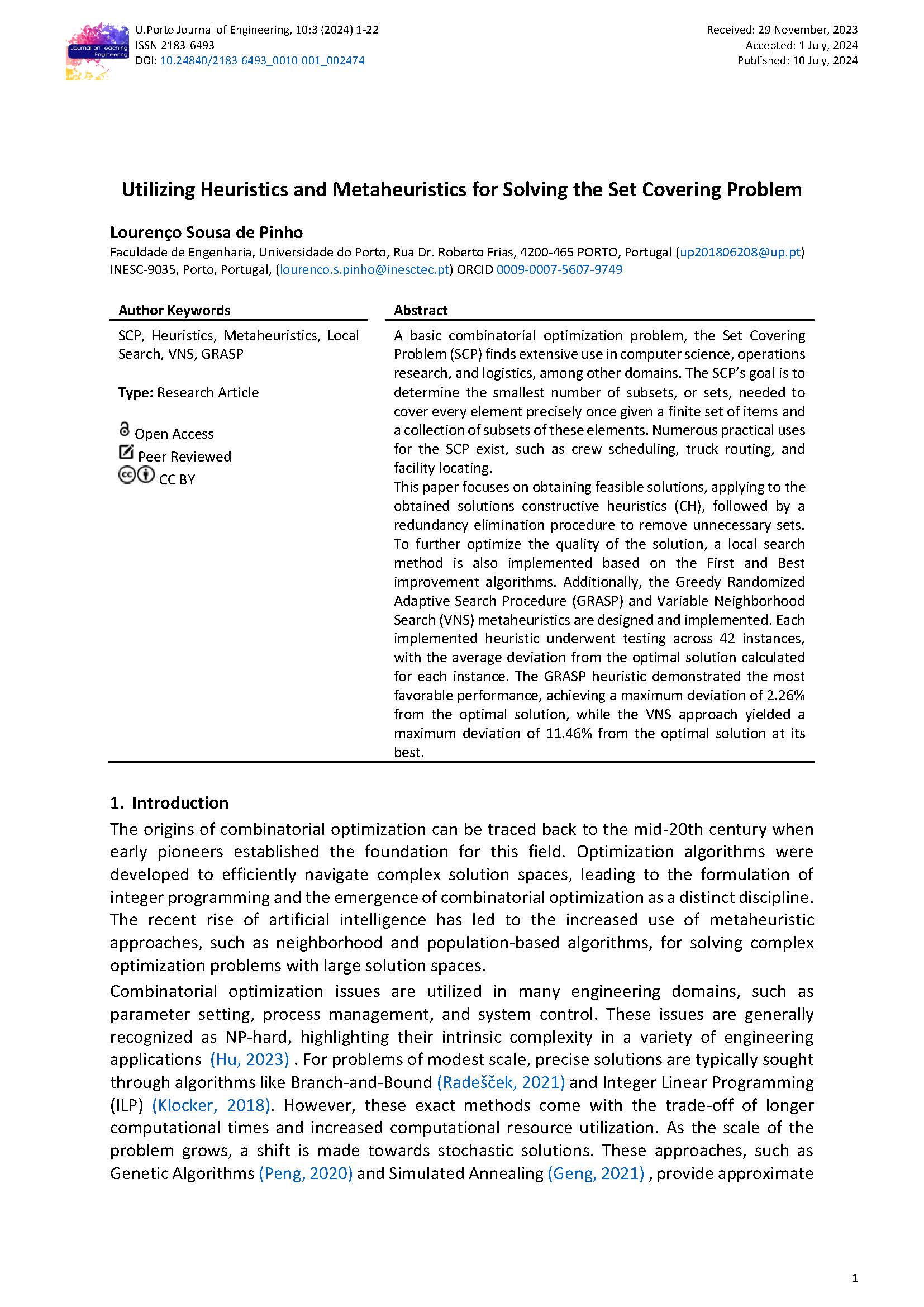Utilizing Heuristics and Metaheuristics for Solving the Set Covering Problem
Main Article Content
Abstract
A basic combinatorial optimization problem, the Set Covering Problem (SCP) finds extensive use in computer science, operations research, and logistics, among other domains. The SCP’s goal is to determine the smallest number of subsets, or sets, needed to cover every element precisely once given a finite set of items and a collection of subsets of these elements. Numerous practical uses for the SCP exist, such as crew scheduling, truck routing, and facility locating.
This paper focuses on obtaining feasible solutions, applying to the obtained solutions constructive heuristics (CH), followed by a redundancy elimination procedure to remove unnecessary sets. To further optimize the quality of the solution, a local search method is also implemented based on the First and Best improvement algorithms. Additionally, the Greedy Randomized Adaptive Search Procedure (GRASP) and Variable Neighborhood Search (VNS) metaheuristics are designed and implemented. Each implemented heuristic underwent testing across 42 instances, with the average deviation from the optimal solution calculated for each instance. The GRASP heuristic demonstrated the most favorable performance, achieving a maximum deviation of 2.26% from the optimal solution, while the VNS approach yielded a maximum deviation of 11.46% from the optimal solution at its best.
Downloads
Article Details

This work is licensed under a Creative Commons Attribution 4.0 International License.
Authors who publish with this journal agree to the following terms:
- Authors retain copyright and grant the journal right of first publication with the work simultaneously licensed under a Creative Commons Attribution License that allows others to share the work with an acknowledgement of the work's authorship and initial publication in this journal.
- Authors grant the journal the rights to provide the article in all forms and media so the article can be used on the latest technology even after publication and ensure its long-term preservation.
- Authors are able to enter into separate, additional contractual arrangements for the non-exclusive distribution of the journal's published version of the work (e.g., post it to an institutional repository or publish it in a book), with an acknowledgement of its initial publication in this journal.
- Authors are permitted and encouraged to post their work online (e.g., in institutional repositories or on their website) prior to and during the submission process, as it can lead to productive exchanges, as well as earlier and greater citation of published work (See The Effect of Open Access).

